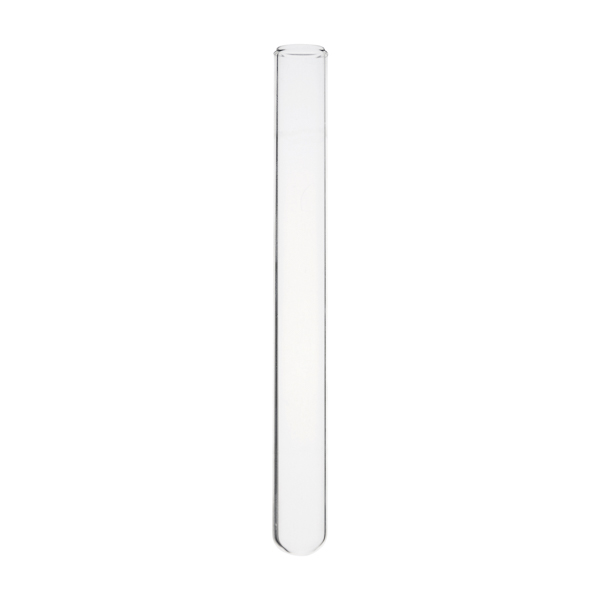Buy glass test tubes, selecting the sizes and type of glass shown below. You can buy neutral glass test tubes, suitable for products that are not intended to be heated directly but must have high mechanical strength. You also have test tubes made of LGB borosilicate glass. See below for their characteristics.

|
|||||||
| capacity | Outer Ø (mm) | l (mm) | thickness (mm) | units | price | stocks | |
| 10 ml | 16 | 100 | 1,0 – 1,2 | 10 | 2,90€ | in stock | Add to cart |
| 100 | 18,90€ | in stock | Add to cart | ||||
| 19 ml | 16 | 150 | 1,0 – 1,2 | 10 | 3,80€ | in stock | Add to cart |
| 100 | 22,90€ | in stock | Add to cart | ||||
| 43 ml | 20 | 200 | 1,0 – 1,2 | 10 | 4,8€ | in stock | Add to cart |
| 100 | 30,25€ | in stock | Add to cart | ||||

BOROSILICATE GLASS TEST TUBES LGB 3.3Made of borosilicate glass LBG 3.3. Without flange |
|||||||
| capacity | Outer Ø (mm) | l (mm) | thickness (mm) | units | price | stocks | |
| 7 ml | 12 | 100 | 1,0 – 1,2 | 10 | 2,90€ | in stock | Add to cart |
| 250 | 29,90€ | in stock | Add to cart | ||||
| 10 ml | 16 | 100 | 1,0 – 1,2 | 10 | 2,9€ | in stock | Add to cart |
| 250 | 38,90€ | in stock | Add to cart | ||||
| 19 ml | 16 | 150 | 1,0 – 1,2 | 10 | 3,9€ | in stock | Add to cart |
| 250 | 50,82€ | in stock | Add to cart | ||||
NEUTRAL GLASS
LBG N is a neutral borosilicate glass with high chemical resistance. Its coefficient of expansion
linear average is 8.0-10-6 K-1. It is used in products which are not intended to be heated directly but which must have a high mechanical resistance (mortars, desiccators, Kitasate flasks...) and in some volumetric materials (e.g. pipettes, burettes...).
BOROSILICATE GLASS
LBG 3.3 is a borosilicate glass with a minimum silica content of 80% and a very low coefficient of expansion (3.3-10-6 K-1) which belongs to the group of "3.3" borosilicates as defined in ISO 3585. It is used in products where chemical resistance, mechanical strength and resistance to sudden changes in temperature must be combined, and because of this unique combination of properties it is the reference glass type from which most laboratory products are made.
PROPERTIES
Coefficient of linear expansion (@ 20/300 ºC): 3.3-10-6 K-1
Annealing temperature (Strain point): 520 °C
Annealing point temperature: 560 ± 10 °C
Softening temperature (Softening point): 820 ± 10 °C
Density: 2,23 ± 0,02 g/cm³
Hydrolytic resistance (according to ISO 719, water at 98 ºC): Class 1
Hydrolytic resistance (according to ISO 720, water at 121 ºC): Class 1
Acid resistance (according to ISO 1776): Class 1
Alkali resistance (according to ISO 695): Class 2
TYPICAL COMPOSITION
80,4% by weight SiO2
13,0% by weight B2O3
4,2% wt/wt Na2O
2,4% by weight Al2O3